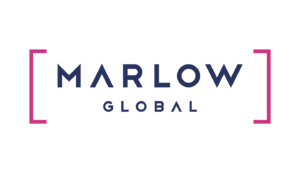Across the continent, democracies are in need of help — including from investors — to stave off abuses of power
Governments across Africa have been overstepping their authority in plain sight — either through the constitutional process or authoritarian rule. Covid-19 is giving them the perfect excuse to exploit the international community’s preoccupation with its own crises to get away with theft, thuggery and the abuse of power.
In recent months we have seen African journalists like Hopewell Chin’ono detained for supporting anti-corruption protests in Zimbabwe and held for six weeks without bail. We have seen constitutional changes pushed through in Ivory Coast and Guinea that extend presidential terms. We have seen a military coup in Mali. And we heard of alleged Covid-related corruption in Gambia, the Democratic Republic of the Congo (DRC), Zimbabwe, Botswana, SA, South Sudan, Somalia, Nigeria, Uganda, Kenya, Malawi and Lesotho.
Young democracies need outside help. They cannot rest solely on civil society, the judiciary and a few brave journalists to defend the rule of law. In some cases the international community has been quick to act. The AU, the Economic Community of West African States (Ecowas), the EU and the UN immediately condemned the military overthrow of president Ibrahim Boubacar Keita in Mali, suspending its AU membership and closing its borders with Ecowas members. But within days the international community had tacitly acknowledged the junta’s authority, driven in part by Mali’s primary role in fighting the Islamic insurgency in the Sahel.
The constitutional abuses in Tanzania, Guinea, Burkina Faso and Ivory Coast have not attracted the same level of attention. Nor the abuses of power in Zimbabwe, Zambia or Uganda. It took weeks for the international community to react to the protests and arrests in Zimbabwe. There has been a muted international reaction to the arrests of opposition party members in Tanzania ahead of the country’s October election. Constitutional changes in Ivory Coast to extend President Alassane Ouattara’s rule to a third term barely registered, despite widespread civil society protests.
In some cases it has fallen to international finance institutions to support civil society to uphold democratic and economic norms. The ongoing talks between the IMF and the government of Zambia are one example. With rising debt, corruption and unfettered government spending, Zambia is at the point of no return. It desperately needs emergency financial assistance, but the IMF is not backing down on its demands for good governance and economic reforms. How long Zambia can hold out remains to be seen.
If the international community is distracted or ineffective, other groups will step in. The church has played a surprising role. It has intervened in the constitutional crisis in Zambia, monitored elections in Burundi and the DRC, and called out government corruption allegations in South Africa.
In Zimbabwe it took over the pulpits in mid-August, after more than 60 people were arrested, reading out an extraordinary “pastoral letter” signed by the Zimbabwe Catholic Bishops’ Conference. “Fear runs down the spine of many of our people today. The crackdown of dissent is unprecedented,” the letter read. “Is this the Zimbabwe we want?”
International human rights groups and the international media continue to shout loudly about injustices. Whether it is questioning the legitimacy of a proposed election in Burkina Faso, where half the country will be unable to get to the polls, or the Malawi “Tippex” election, endorsed by EU election officials but eventually overthrown by local civil society and the judiciary.
International investors have begun to act — slowly. Foreign investment fled when the Zimbabwean stock markets reopened in August, plunging the index 21% and selling off more than Z$208m worth of stock.
Foreign investors could, and should, do more to protect the countries they invest in. Investors don’t deserve their reputation as “barbarians at the gate”. They bring with them capital, investment and skills that develop local economies and deliver prosperity. But they also have a vested interest in holding authority to account. If governments go against their principles of a free market, the right to hold private property and individual freedoms, what is economic liberalism good for?
Abuses of power, corruption and constitutional coups set precedents and invoke voter fatigue and powerlessness. The rule of law in Africa should concern everyone. Just look at what is happening in Belarus or even in the US. Imagine what would happen if the international community stayed silent in the November US elections if the results are not respected. It doesn’t bear thinking about — and nor should it in Africa.
This article was originally published in BusinessDay on 16 September 2020.
Cover Image: © 123RF/nightman1965


